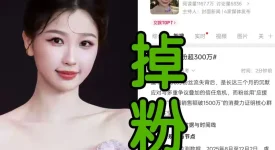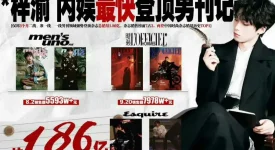(may contain spoilers)
Douban rating: 8.8
Director: Yin Lichuan
Starring: Yong Mei, Jiang Wu, Janice Wu
Douban Comments: “Sun Xiaoxue said, “I don’t want to be like everyone else. I want to marry for true love, for happiness. But love alone can’t put food on the table. Married life will eventually revolve around daily necessities and family matters.
Xu Xiaoyang, played by Zhang Benyu, doesn’t have much screen time, but I think the director did a great job shaping his character. He’s a very typical yet subtly misleading figure. On the surface, he seems open-minded, listens to his wife, and gets along well with his in-laws. But when it comes to raising their child, his deep-seated biases about women are revealed. He assumes it’s a woman’s duty to care for the child and only shows concern for his wife after that assumption is satisfied. He never truly considers life from her perspective – what she’s going through, the risks she faces, or her future.
In reality, many women think, ‘My husband treats me well, so I should sacrifice myself to support him as a good wife.’ This mindset inherently places them in a weaker position.”

“This story isn’t about running away – it’s about determination. It doesn’t criticize men, but rather the societal value system. Simply presenting how our lives actually operate is enough to make the audience feel the suffocating burden and constraints women face in fulfilling family responsibilities, as well as the sorrow and horror of their personal will being forcibly eroded.
For us, this is like our own version of Kim Ji-young, Born 1982.”
“This is one of the most well-constructed domestic films focusing on women in recent years. A comparable work might be Young Woman and the Sea – an odd comparison at first glance, but it makes sense upon closer reflection. Both are based on real-life stories, both depict a resolute departure under patriarchal oppression – one swims toward the sea, the other runs into the wilderness – and both channel the film’s entire emotional buildup into a single decisive act. More importantly, both are examples of women-centered works at a foundational stage, employing a somewhat conventional but effective narrative style.
The significance of this film lies in its relevance to China’s current chaotic social discourse. It brings audiences back to one of the most basic and common struggles faced by women, making it accessible and resonant even for men.
One design element I particularly liked is that this isn’t a straightforward tale of triumph (girlboss narrative). On the contrary, the mother’s two failed attempts to leave are not because of her husband, but her daughter. This shifts the focus from an isolated instance of one man oppressing one woman to a systemic oppression. It’s the structure itself that traps the mother, and it’s that structure she ultimately breaks through.
This precision and sensitivity in portraying such nuances truly reflect the unique perspective a female director brings – only someone with that awareness could have made this film.”








